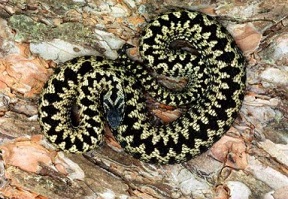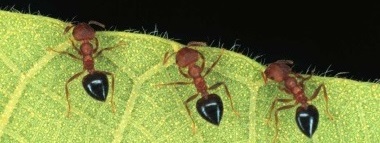Welcome to Part IB Evolution & Animal Diversity
Key Contacts
Course Organiser: Dr Robert Asher
Senior Examiner: Prof Rufus Johnstone
Course Administrator: Francesca Anthony

This course examines the principles of evolution and how they can explain the extraordinary adaptations and diversity of animal life. The course comprises four sections: Behavioural Evolution, Genes and Genomes, Macroevolution and Diversity, and Adaptations, taught by lecturers who are actively researching in these fields. After completing the course you should be familiar with the fundamental principles of evolution, and how behavioural, anatomical and physiological adaptations of animals have evolved. This will prepare you for Part II modules related to organismal and evolutionary biology and genetics.
Each six-lecture block will be accompanied by a practical related to the lectured material and designed to develop your scientific skills. Practical work consists of experiments, behavioural observations and observation of specimens; your write-ups of the practicals will be assessed and will contribute to 20% of your final mark.

Prerequisites
There is no prerequisite for IB EAD. Whilst it may be an advantage to have taken Part IA Evolution and Behaviour, it is not necessary to have taken this or any other particular first year course. Interested students who have no experience of biological courses in Part IA are advised to consult their Director of Studies.
Aims and learning outcomes
Aims:
- To investigate the principles of evolution and show how they underlie animal diversity at the level of genes, phenotypes, societies and species.
- To elucidate the development and evolution of adaptive morphology and behaviour of animals.
- To demonstrate the fundamental importance of phylogenies in studying evolutionary processes.
- To prepare students for Part II courses that require an understanding of evolutionary biology and animal evolution.
Learning Outcomes:
At the end of the course, students should be able to:
- appreciate the complexities of biological organisation and address scientifically controversial issues in a rational way;
- interpret material in terms of evolutionary causes and consequences;
- analyse and report on material learned;
- assess the scope of evolutionary biology and select particular areas for further study;
- Integrate related topics from separate parts of the course.
Course Structure
The full lecture and practical timetables (along with any additional sessions) will be posted on the course Moodle site and timetable.cam.ac.uk for students.
- Lectures: Weekly - Mon, Wed, Fri 11.00 – 12.00 in the Department of Zoology Main Lecture Theatre.
- Practicals: Fortnightly - Wed or Thurs, 12.00 – 17.00 in the Department of Zoology Elementary Laboratory. Students will be allocated a practical group (A, B or D) and should always attend that session.
| Assessment | Weighting |
| EAD Exam Paper 1 | 40% |
| EAD Exam Paper 2 | 40% |
| Practical Submission | 20% |
Supervisions
In Part IB Evolution & Animal Diversity, students may be assigned different specialist supervisors for different parts of the course. The appointment of supervisors is the responsibility of your Director of Studies. The Teaching Office Coordinator can help by informing Directors of Studies of the names of those willing to supervise. When you know the name of your supervisor, get together with your college supervision partners and contact the supervisor in good time. If you do not know the name of your supervisor a few days before the start of the relevant block of lectures, contact your Director of Studies without delay.
You should expect your supervisor to set at least two essays, or comparable exercises, for each section of the course, together with appropriate additional work based on the lectures and practicals. Past Tripos examination papers are available on the course Moodle site and you are advised to become familiar with the structure of the papers and the sorts of questions that have previously been set.
Supervisions offer an extremely valuable opportunity to discuss your work in depth. Not only do they help you to obtain a good understanding of the subject matter, but they also help develop your ability to present material orally and in writing.

General background reading
Titles with an asterisk [*] are available as eBooks via iDiscover.
- Carroll, S.B. (2007) Endless Forms Most Beautiful: The new science of evo devo and the making of the animal kingdom, Phoenix.
- *Coyne, J. (2009) Why Evolution is True, Oxford University Press.
- *Davies, N. (2016) Cuckoo: Cheating by Nature, Bloomsbury.
- *Davies,N., Krebs, J. & West, S. (2012) An Introduction to Behavioural Ecology, Wiley-Blackwell.
- *Shubin, N. (2008) Your Inner Fish, Penguin.*
- *Wilkinson, M. (2016) Restless Creatures: The story of life in ten movements, Icon books.
